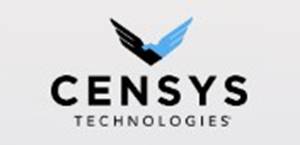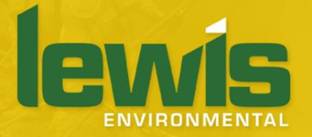State Legislators, Joint Trades, Energy Companies, Business and Labor Leaders Join API Pennsylvania in Celebrating ‘Natural Gas and Oil Day’ at the State Capitol to Spotlight Pennsylvania’s Energy Advantage
202.682.8114 | press@api.org
Press conference and energy technology showcase underscore industry impacts and innovations
HARRISBURG, PA, June 25, 2024 – Today, American Petroleum Institute Pennsylvania (API PA) was joined by state senators and representatives, joint trades, energy companies, and business and labor leaders in the state to host “Natural Gas and Oil Day” at the capitol to spotlight Pennsylvania’s energy advantage and advocate for policies that strengthen our robust natural gas and oil industry. Natural Gas and Oil Day kicked off with a press conference and was followed by a hands-on, interactive showcase with over 10 energy industry- and technology-related vendors.
“Home to the first U.S. commercial oil well and the shale revolution, Pennsylvania has truly pioneered modern energy development,” said API PA Executive Director Stephanie Catarino Wissman. “Natural gas development has not only breathed new life into communities across the Keystone State – the number two natural gas-producing state, behind only Texas - but also benefited every corner of our commonwealth by generating thousands of good jobs, billions of dollars in economic impact, more than $2.7 billion in impact fee funding for critical projects, and affordable, reliable energy for families and businesses while helping to reduce emissions.”
Wissman, leaders of the Pennsylvania Gas and Oil Caucus – Senators Camera Bartolotta (R-46) and Lisa Boscola (D-18) as well as Reps. Ed Neilson (D-174) and Eric Nelson (R-57) – and Sen. Gene Yaw (R-23), Chairman of the Senate Environmental Resources and Energy Committee, and Rep. Marty Causer (R-67), Minority Chairman of the House Environmental Resources and Energy Committee, outlined the value of Pennsylvania natural gas and oil while advocating for policies needed to strengthen our energy advantage and economy. Jim Welty, Vice President of Government Affairs for the Marcellus Shale Coalition, and Dan Weaver, President and Executive Director of the Pennsylvania Independent Oil and Gas Association, also underscored the economic and environmental progress resulting from Pennsylvania-made energy.
According to the most recent PwC report, the natural gas and oil industry contributes over $75 billion toward the state’s economy and supports more than 423,000 jobs. Research shows that every direct job in the natural gas and oil industry generates 3.6 additional jobs in Pennsylvania. To put this in perspective, the total number of jobs supported by industry in Pennsylvania alone is equal to 4 times the capacity of Penn State University’s Beaver Stadium.
“Last week, API released its 5-point policy plan to secure American energy leadership and help reduce inflation,” said Wissman. “The points focus on protecting consumer choice, bolstering our geopolitical strength, leveraging our natural resources, fixing our permitting system and advancing sensible tax policy. This policy roadmap can help keep Pennsylvania in the driver’s seat when it comes to energy leadership and strengthen our economy to help families across the commonwealth.”
During Natural Gas and Oil Day, industry- and technology-related companies were on hand to showcase the advanced technologies and engineering practices being applied to produce and deliver natural gas and oil safely and efficiently, including virtual reality, drones and other state-of-the-art equipment.
The showcase also included the Energy Education Foundation’s Mobile Energy Learning Unit (MELU), sponsored by API. The MELU, which features six learning stations with curriculum based, hands-on activities, offers a chance to learn about the industry's proactive efforts to promote STEM education and introduce the energy sector as a possible career path for students as they head into high school. The MELU has reached thousands of students across the U.S. in grades 5 through 8.
To learn more about the natural gas and oil industry, go to api.org.
The American Petroleum Institute Pennsylvania (API Pennsylvania) is a state affiliate office of the American Petroleum Institute (API). The API represents all segments of America’s natural gas and oil industry, which supports nearly 11 million U.S. jobs and is backed by a growing grassroots movement of millions of Americans. Our approximately 600 members produce, process, and distribute the majority of the nation’s energy, and participate in API Energy Excellence®, which is accelerating environmental and safety progress by fostering new technologies and transparent reporting. API was formed in 1919 as a standards-setting organization and has developed more than 800 standards to enhance operational and environmental safety, efficiency and sustainability.
###
Today’s Technology Showcase Participants













Description of Showcase Technologies
API Pipeline Conservation Program - API and its member companies have established an innovative program to use the latest conservation and community engagement practices to re-envision how pipeline right-of-ways (ROWs), pipeline facilities, and other industry assets can be managed and maintained. This program encourages collaborative conservation practices by through voluntary mechanisms by connecting natural gas, oil, and low caron energy companies operating in Pennsylvania with local communities, subject-matter-experts in habitat management, biology, ecology and other disciplines.
Baker Hughes is a diversified energy industry service provider that supports various elements of the natural gas and oil industry, including onshore and offshore natural gas and oil production and processing, as well as testing and installing gas technology solutions that serve the entire natural gas value chain including pipeline, LNG, gas storage, and gas distribution systems. Baker Hughes also produces equipment and materials and provides services related to low carbon energy sources and climate technologies that span carbon capture, utilization and storage, hydrogen production and transportation, and emissions management capabilities. Baker Hughes display is highlighting advanced materials being applied to construction and replacement of energy pipeline systems.
Censys Technologies develops, manufactures, and provides services for unmanned aerial systems (UAS, or more commonly referred to as drones). These UAS systems are used in a broad range of applications for the natural gas and oil industry, including discovery of orphaned wells and monitoring and surveillance of existing assets. Through advanced integrated remote sensing technologies and a machine learning analytics platform, conditions regarding energy system operations are rapidly evaluated for preventative maintenance and delivered to support decision-making by pipeline and other utility operators.
Circle B NDE is a non-destructive testing service company that focuses on providing services to pipeline operators in support of their integrity management plans. Pipeline operators use highly specialized in-line inspection tools (“Smart Pigs”) to detect possible anomalies in their system. Circle B NDE’s specializes in comparing these “as detected” conditions with the “as found” condition by providing pipeline operators with details about the actual size, type and severity of any condition noted. Circle B NDE modifies advanced imaging and analysis processes developed in other industries to help pipeline operators understand the condition of their systems. We use advanced ultrasound techniques to image features in the pipe wall, and today we are presenting laser profilometry. This technology creates a high-resolution virtual replica of the pipe’s external surface. Any noted features (corrosion, mechanical damage, dents, etc.) can then be accurately measured and their severity calculated.
The Energy Education Foundation (EEF) cultivates and educates the future of the energy industry through education, professional engagement, and advocacy. EEF impacts people of all backgrounds from the beginning of their education through the end of their career and equips individuals with the tools they need to thrive in our rapidly changing world. EEF bridges the past, present, and future by offering a robust suite of programs, including Mobile Energy Learning Units (MELUs), one of which is on display. EEF also sponsors STEM teacher workshops and offers scholarships.
The Fiber Optic Sensing Association (FOSA) is a non-profit organization created in 2017 with the mission of educating industry, government, and the public on the benefits of fiber optic sensing. Through webinars, videos, white papers, public presentations and public policy advocacy, the organization provides information on the use of fiber optic sensing to secure critical facilities, enhance public safety and protect the environment. Fiber optic sensing is used by the natural gas and oil industry to monitor pipelines and production facilities for leaks, ground movement and geotechnical integrity management, and unauthorized encroachments and excavation activity.
Heath Consultants specializes in utility services and gas detection technologies, with a primary focus on the natural gas industry. The company offers a wide range of services, including leak detection, line locating, and damage prevention. In addition, Heath provides advanced technologies and solutions to help detect and manage leaks, ensuring safety and operational efficiency. The company supports numerous energy utilities across Pennsylvania, offering comprehensive leak survey services that encompass over 9,500 miles of mainline and more than 260 miles of service lines. Heath has equipped utility providers throughout the state with its advanced gas detection technologies. Located in Greensburg, PA, our Northeast Division employs approximately 40 members of staff.
INGU’s pipeline inspection solution combines a baseball sized free-floating inline inspection tool with machine learning powered data analytics and delivers results in an online interactive map showing the inspection results on the pipeline path. In a single inspection the pipeline is assessed for leaks, deposits within the pipeline, and metal loss of the pipeline wall. The latter is done using a Magnetic Flux Density (MFD) analysis to identify pipe joints with potential metal loss exceeding 30% of the nominal wall thickness. This approach provides an integrity assessment of pipelines with sufficient resolution to understand the pipeline wall condition at least equivalent to hydrostatic tests.
Lewis Environmental, with three (3) separate operations centers in PA, provides emergency response, industrial maintenance, waste, and environmental remediation services for the natural gas and oil industry. Lewis supports operator desk top emergency response drills, full scale exercises, and provides the necessary equipment to address the rare instances when emergency events occur. The display at today’s event showcases response capabilities to protect people and the environment, including use of dispersants, containment “booms”, absorbents, and equipment to ensure rapid and effective response when needed.
Massachusetts Materials and Technology (MMT) – MMT’s proprietary technology provides measurement of pipeline material properties in the field, an important parameter for engineering calculations that determine if repair/maintenance is needed for a specific section of a pipeline. MMT’s technology is mounted on a section of a pipe wall to measure pipe steel material properties and yield strength from outside the pipe wall. Their display shows how data is generated and processed to assess the structural integrity of pipe steels.
TD Williamson - T.D. Williamson draws upon more than 100 years of industry leadership to help operators of pressurized pipeline systems keep the world’s energy lifelines running safely and reliably. TDW delivers a comprehensive portfolio of safe integrity pipeline system solutions for onshore and offshore applications, including advanced isolation and intervention, integrated pigging and integrity assessment solutions.
Coterra – Working with Xalter, Coterra is featuring a virtual reality (VR) experience of a gas well pad site. This immersive demonstration has been developed for training purposes and to help instruct the next generation of energy workers.
Pillar Innovations is a turnkey engineering contractor that supports the natural gas and oil industry, including projects that are focused on energy production, transportation, and advanced technologies for automation of operations. Pillar has serviced the natural gas an oil industry in Pennsylvania for decades and has subject matter experts on staff that address a broad range of issues in the energy industry, including design, fabrications, and construction of energy production and transportation systems, facility automation and controls, geotechnical engineering, and monitoring programs for operation reliability and the integrity of energy systems.


